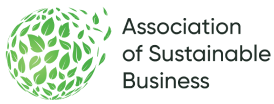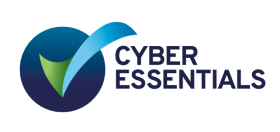Our discovery process at Quba is about gaining an in-depth understanding of the client’s business goals and processes and their project’s key objectives, target audience and platform user needs. While this was once always an in-person event, we’ve moved to a remote process. But the inquiry is the same.
Mission control
The client almost always comes to us with an idea of what they want to accomplish. In the first part of discovery, the workshop, we explore that in detail. What is causing a problem with their current website, for example? Where is the online experience being disrupted, or what critical processes need accommodating? How do different departments make use of the platform and how will they benefit from these new objectives? We examine market position against competitors, and begin to understand their array of typical users. The next step is what we call refine & define. We take the workshop outcomes and create usable models. These include audience personas, process maps, and other tools that provide a high level view of key areas of the project. In the process (could use phase, where we are using ‘process’ for UX purposes), we also determine any areas requiring further research. For example, if individual team objectives clash with the primary project objectives.
The payload
Finally we provide the discovery outputs: a full content audit, a technical specification and a site architecture plan. This is the foundational digital strategy that underpins the whole project. The content audit isn’t just a catalogue of content, but it also gives quality insight. How well is the content aligning with its purposes, is it capable of driving the user journey, are there any gaps that need filling in? The technical spec will detail the overall purpose of the platform and how its primary users will engage with it. This includes user stories, page descriptions, performance requirements, and possibly software recommendations. The architecture is a graphical representation of how the platform (information) could be organised.
A panoramic view
Often in the course of discovery, objectives parallel to the primary project arise once the discussion gets underway. For instance, a client may realise they have much more content than they thought, so a content strategy must now be considered. Or a departmental interview may uncover a process that has to be accounted for. The discovery process is crucial to bringing these matters to the surface at the beginning of the project. It’s much easier (and faster and cheaper) to develop with knowledge up front than to try to change something afterward to accommodate new information. Take Quba client AvantiGas as an example. This client had a typical, intensive 1-day discovery workshop, followed by subject matter expert interviews, conducted by two senior Quba staff members. AvantiGas had some very clear objectives in mind going into the process, but within discovery, a new objective was uncovered: the marketing team needed assistance with content. Since this objective was in parallel to the primary goals of the project, rather than in conflict with them, we were able to work with this information in planning the digital strategy when putting together the discovery outputs. Part of the final platform included some flexible content templates, so that the client could build pages themselves the way they wanted. Health Systems Global, on the other hand, undertook the discovery process specifically to create a digital strategy. This client was seeking an audit of its two websites in the run-up to their 2020 global symposium to flag areas for improvement. In other words, they didn’t have any particular objectives. They wanted a digital agency—in this case Quba—to conduct user interviews, competitor research and other investigations to generate digital strategy objectives.
Getting off the ground
Whatever you bring to the Discovery table, you can be sure you’ll come away from it with a comprehensive plan for your digital strategy. Ready to talk to us about your project? Contact Head of UX & Design, Amy Willoughby.
Get more of this by subscribing to our regular newsletter
 Amy Willoughby
Amy Willoughby


